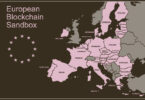Last week the Directorate for Trade of the European Commission published a “pre-announcement” of a blockchain tender for solutions that facilitate international trade.
The aim is to build a list of potential bidders.
Back in March, the Trade department invited vendors to sign up to a broader list of potential bidders, including for “analytical and feasibility studies of trade related digital solutions, IT tools and development of related software.”
In the latest announcement, the department wants to identify the key priority areas for blockchain applications, as well as an assessment of the relevance and how easy it would be to implement any solution. Part of the work is likely to involve delivering prototypes.
The tender is not coming from the technology side, the EU Blockchain Observatory, but directly from the trade department.
The European Commission recently published a report predicting a decline of 9.2% in EU exports as a result of COVID-19. The World Trade Organization’s (WTO) forecasts were even more dire, estimating falls in world trade in 2020 of between 13% and 32%.
Apart from the direct disruption caused by COVID-19, the crisis has highlighted the pressing need for digitization. Trade finance has been a challenge because it’s often reliant on paperwork, but bank staff are not in the office. Recently, the International Chamber of Commerce (ICC) called for some countries that don’t support digital signatures and digital invoices to change their laws.
Trade finance and supply chain finance are efficient ways to help address funding challenges. Yesterday the Danish Export Credit Agency announced it would act as a guarantor for a Tradeshift supply chain finance solution targeted at the 250 biggest buyers. Even though the number of buyers is small, if most of its suppliers can get immediate payment, the ripple effect could be substantial.






